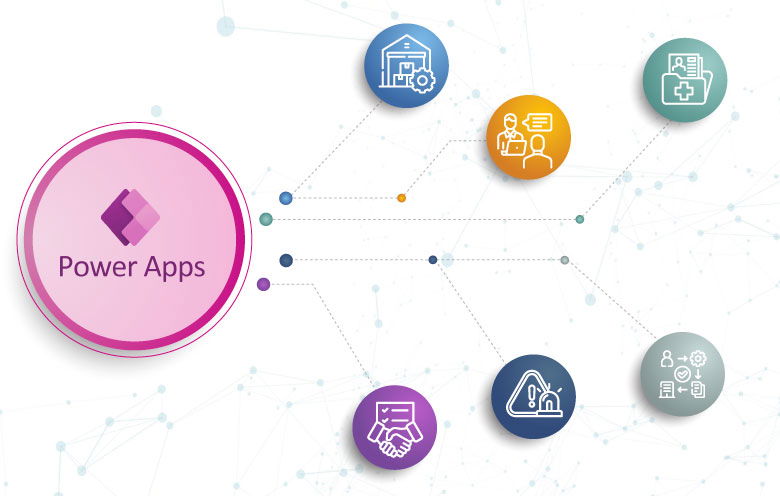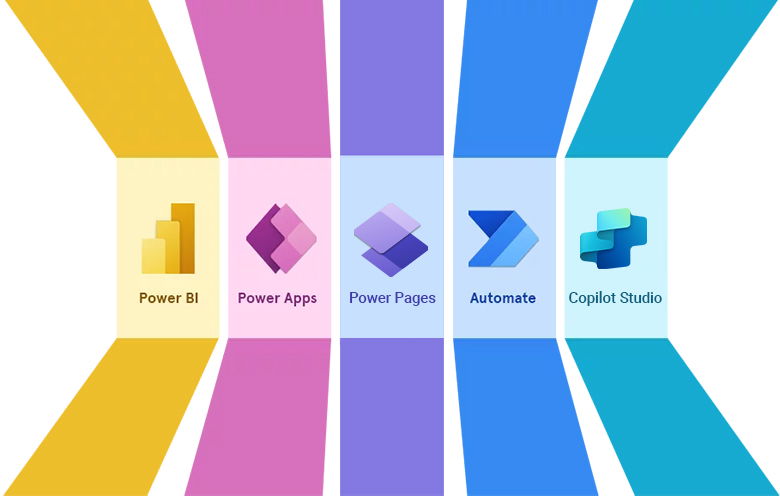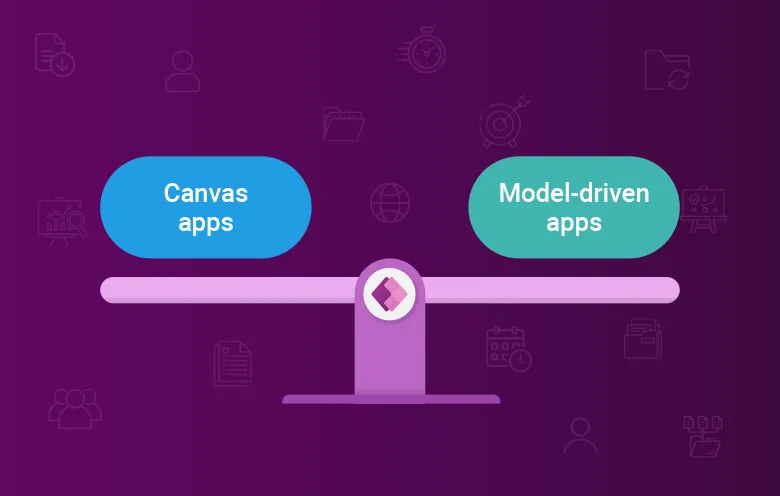Low-code development is revolutionizing the way apps are built, empowering everyone from business users to professional developers to create innovative solutions faster than ever before. This low-code development handbook will explore the core concepts and benefits of low-code, with a spotlight on Microsoft’s Power Apps platform.
What is low-code development?
Low-code is more than a development methodology; it is a revolutionary approach that transcends traditional coding paradigms. It transforms the low-code application development landscape into a visually-driven, model-centric environment.
The essence of low-code lies in its inclusivity, enabling developers of all levels and even non-developers in building enterprise-grade applications through a drag-and-drop functionality. Also, low-code platforms can help to simplify the legacy app migration process by providing a visual and declarative approach to development. Whether you are a professional developer, a citizen developer, or a business user, low-code applications bring innovation.
What are the features and benefits of low-code
Coding platform:
Low-code operates on a solid platform, providing a foundation to create applications without the complexities of traditional coding.
Optimizing business processes:
It’s not just about writing code; it’s about optimizing business processes, making them more efficient and responsive.
Accessible code applications:
Developers can still get hands-on with coding applications when needed, but low-code provides a more accessible route for everyone.
Empowering business users:
Low-code isn’t limited to professional developers; it empowers business users to actively contribute to app building.
Breaking down barriers:
Low-code isn’t just a tool; it’s a canvas for creativity that removes barriers to application development.
Prioritizing customer experiences:
Low-code emphasizes creating applications that offer seamless and user-friendly experiences, ensuring high user engagement.
Real time development:
With low-code, mobile and web app development happens in real time, allowing for immediate changes in response to evolving business needs.
Suggested: How low-code/no-code solutions revolutionize the healthcare industry
Microsoft low-code and Power Apps
One prominent player in the low-code development space is Microsoft, with its Power Apps platform. With the platform’s low-code capabilities, developers can rapidly build low-code web and mobile applications using intuitive drag-and-drop interfaces and pre-built templates. This empowers businesses to streamline their app development workflows and deliver solutions faster than ever before.
- Accessibility for all: Whether you’re an experienced coder or a novice, Power Apps provides an inclusive solution.
- Effortless app building: The platform empowers users to effortlessly craft mobile and web applications.
- Democratizing development: Breaking traditional barriers, Power Apps democratizes application development.
Power Apps comprise a comprehensive suite of tools and services tailored for organizations of all sizes, enabling them to craft and deploy personalized mobile and web applications without the need for traditional coding. At the forefront of this suite is Power Apps, a versatile flagship product offering an array of features and capabilities, such as:
- Intuitive interface: A user-friendly drag-and-drop interface for effortless application creation and management.
- Seamless integration: Integration with Microsoft Dataverse, providing a unified data platform for all your business applications.
- Pre-built resources: A library replete with pre-built connectors and templates, simplifying the initiation process.
- Diverse application types: Support for building a wide spectrum of application types, ranging from mobile apps to web apps and process automation workflows.
Power Apps stands out not only for its versatility but also for its scalability and security, making it an ideal choice for organizations of varying sizes. Additionally, it is bolstered by the robust global support and infrastructure of Microsoft.
Microsoft’s low-code and Power Apps cater to a diverse user base, including:
- Business users: Business users can harness Power Apps to create tailored applications that streamline workflows, ultimately enhancing productivity.
- Citizen developers: For non-technical users interested in solving business challenges through application development, Power Apps offers an accessible avenue to build applications with minimal coding knowledge.
- Professional developers: Professional developers can leverage Power Apps to create intricate applications that demand custom code. Power Apps provides an array of tools and features that facilitate professional developers in extending the platform to meet their specific needs.
The future of low-code development
From departmental efficiency to enterprise-wide innovation, low-code is reshaping how organizations solve problems. Realize the future of application development by leveraging low-code to quickly innovate and drive unprecedented business value.
In conclusion, low-code app development isn’t just a technology; it’s a catalyst for organizational evolution. Whether you’re a seasoned developer, a business strategist, or an enthusiast with a brilliant idea, low-code empowers you to turn concepts into reality. Connect with our development team for low-code mobile applications or web applications development as per your business requirements.



